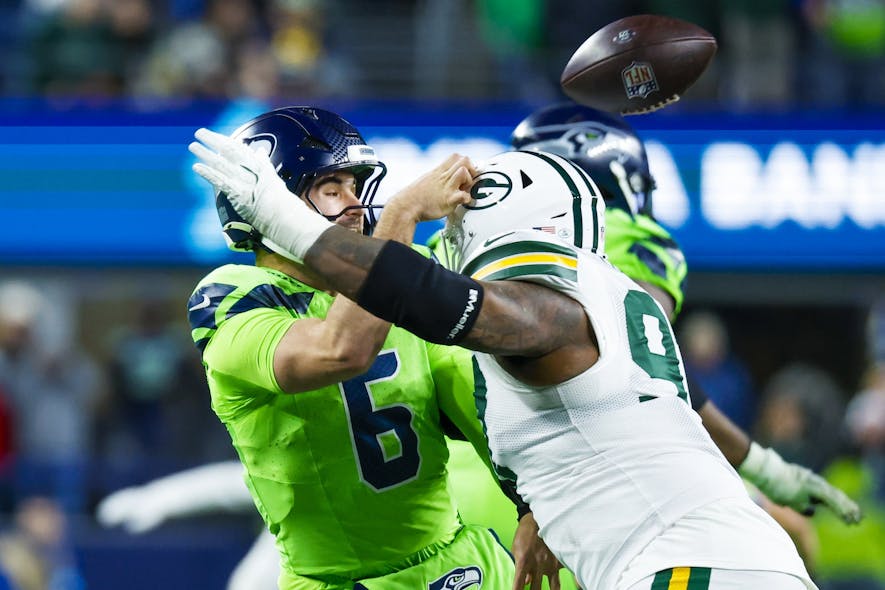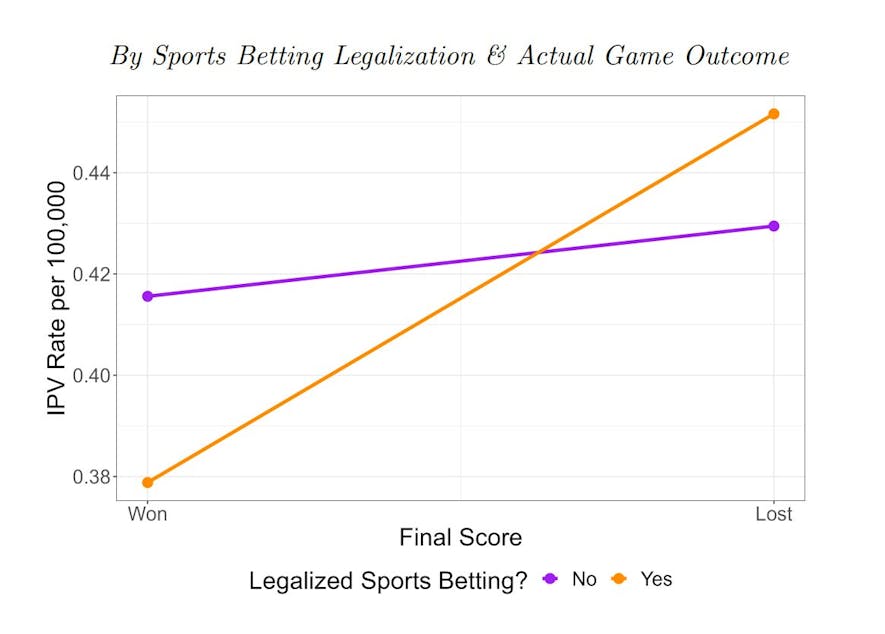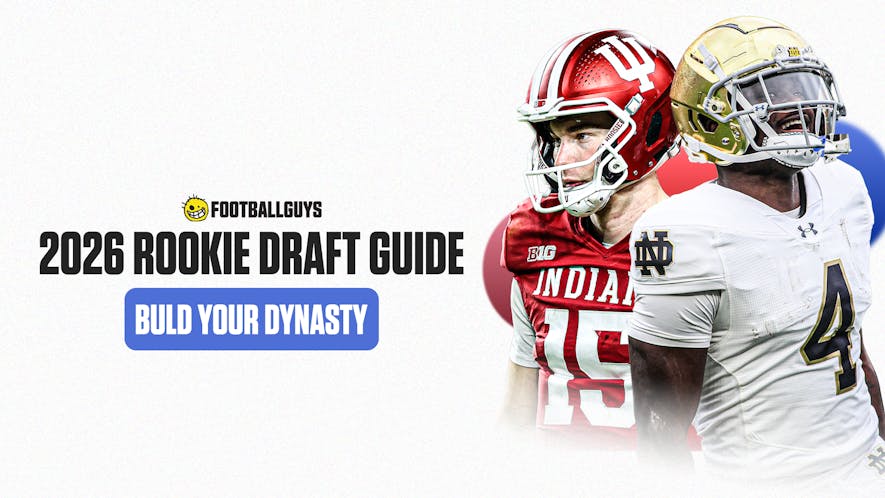A good sports betting column should be backed by a profitable gambler with a proven track record. It should offer picks generated by a sophisticated and conceptually sound model. Most importantly, it should treat the subject with the seriousness it warrants.
This is not that column.
Instead, this will be an off-beat look at the sports betting industry-- why Vegas keeps winning, why gambling advice is almost certainly not worth the money, and the structural reasons why even if a bettor were profitable, anything they wrote would be unlikely to make their readers net profitable, too.
While we're at it, we'll discuss ways to minimize Vegas' edge and make recreational betting more fun, explain how to gain an advantage in your office pick pools, preview games through an offbeat lens (with picks guaranteed to be no worse than chance), and tackle various other Odds and Ends along the way.
Tracking the Unders
In 2022 and 2023, mass-betting the unders was incredibly profitable over the first 6 weeks and essentially just broke even after that. I hypothesized this year that maybe all we needed to do to make a killing was to start our "mass-bet the unders" strategy earlier in the season.
After making $3.64 in Week 14, the unders once again turned a profit in Week 15-- a whopping $2.73 gain (provided you saw the same lines I saw, put $10 on each game, and got all action at -110). $6.36 might not seem like much to show for two weeks, but it sure beats the -$89 from the two weeks before. Plus we're now on a winning streak-- momentum is on our side!
In total, mass-betting the unders would leave you down $197.27 since we started (or $143.68 if you were following the "snowball strategy"). In all, we're down 9.5% of our amount wagered. That's bad, but it's still better than tailing ESPN's "odds-boosted" promo picks, a strategy that is down 14.4%.
Is Legalized Betting Good?
Is legalized gambling good? For someone who writes a weekly sports betting column, my thoughts are surprisingly complicated. (Or perhaps not surprising; anyone who is regularly exposed to gambling influencers quickly realizes how scummy the industry can get.)
Gambling is undoubtedly a vice, and while I think most vices should be legal, I also favor reasonable restrictions. For instance, America bars gambling below a certain age, which is comparable to how it treats the other Big Four vices-- drinking, smoking, driving, and marriage. (Compared to the Big Four, gambling is the least likely to kill you, but after marriage, possibly the second most likely to bankrupt you.)
Of the five, legalized gambling (as it currently stands) has the most concerning economic model.
SMU monitored 700,000 online sports bettors. Less than 5% withdrew any profit
— Saagar Enjeti (@esaagar) December 5, 2024
The rest were were losers 3% of the losers lost so much they made up for 50% of the revenue pic.twitter.com/WDcHYOKrSk
When 3% of your user base makes up 50% of your revenue, that leads to fairly disturbing incentives. A lawsuit alleges that DraftKings assigned four employees to a single problem gambler, contacting him daily and encouraging him to wager more despite the fact that he was already wagering four times his annual income (a fact that DraftKings allegedly failed to verify despite internal protocols requiring it for all high-volume gamblers).
Alcohol companies certainly benefit financially from problem drinkers, and the Marriage Industrial Complex certainly loves the serially wed, but Jim Beam isn't standing outside of AA meetings offering free shots, and (to the best of my knowledge) Big Bridal isn't buying up family counseling centers and pushing the therapists to advocate more forcefully for divorce.
(Indeed, the only comparison I can think of for such a skewed distribution is the opioid epidemic, where the top 1% of doctors wrote 27% of all prescriptions and were responsible for 49% of all prescribed doses. This is-- it goes without saying-- not the sort of model one wants to emulate.)
I don't know enough about the unit economics of the large gambling sites, but if they cannot exist in their current form without preying on the vulnerable, then they should not be allowed to exist in their current form. Society should not allow anything that is not to the benefit of society. Laws exist to serve man, not man to serve laws.
Does Legalized Betting Lead to Domestic Violence?
Recently, I came across another troubling datapoint: UO analysis finds link between legal sports gambling and higher rates of intimate partner violence. After poring over county-level reports and correlating them to NFL game outcomes, researchers found that when the home football team was favored by 3 points or more and lost unexpectedly, rates of domestic violence rose by 10% in states that had ilegalized sports betting.
This is very concerning! But the worst way to understand a study is to read reports about that study, so I dug into it myself. Here's the chart that the 10% claim is coming from
One way to describe this chart is "rates of domestic violence increase in states where sports betting has been legalized when the home team is favored and loses". Another equally valid way to describe this chart is "rates of domestic violence DECREASE in states where sports betting has been legalized when the home team is favored and wins".
In fact, saying both descriptions are equally valid is unfair. The size of the decrease is significantly larger than the size of the increase. But it's even worse than that; remember, this is only looking at games where the home team was favored by 3 or more points.
Three-point favorites win about 59% of the time, and teams that are favored by even more win even more. Across the entire league, favorites win about 66% of their games, though since this sample excludes small favorites (2.5 points or less), we'd expect an even higher winning percentage.
So the size of the decrease is nearly twice as large as the size of the increase, and the circumstances of the decrease happen at least twice as often as the circumstances of the increase. Based solely on this chart, it seems that legalizing sports betting led to a significant net decrease in incidents of intimate partner violence in weeks where the home team was favored by 3 points or more-- though you'd never know it from how the report has been covered.
I enjoy betting, but I am not some starry-eyed naif who thinks legal and easily accessible gambling is without costs. (I try my best to communicate the costs as clearly as possible so that you can also be clear-eyed and intentional if you choose to engage with it.)
Nor, however, am I some strident idealogue who denies the benefits of bringing gambling into the light, the positive impact of its revenue streams, and the legal protections suddenly afforded to those who struggle. These are serious issues, and they deserve to be treated seriously. Facts should be followed where they lead, not bent to serve a preexisting agenda.
As always, if you find that your gambling is spiraling out of your control, resources are available to help, such as the National Council on Problem Gambling. Likewise, if you have been a victim of domestic violence, help is available at the National Domestic Violence Helpline.



